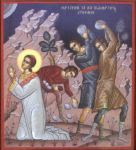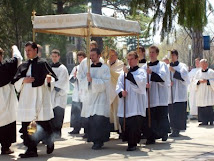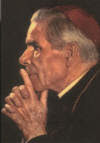NATURE AND PURPOSE OF THIS PART
70 Within our present century, catechists have thoroughly investigated questions raised by the psychological, educational, and pedagogical sciences. Indeed, studies have been undertaken with regard to the method to be used in the catechism lesson; the role of activity methods in the teaching of catechesis has been pointed out; the act of catechesis has been investigated in all its parts according to the principles which govern the art of teaching (experience, imagination, memory, intelligence); and finally, a differential methodology has been worked out, that is, a methodology which varies according to the age, social conditions, and degree of psychological maturity of those who are to be taught.
Not all problems of this sort are considered here; rather, here are set forth only certain points to which great importance is being attributed today. Attacking these problems in an appropriate and specific way in individual countries will be the task of the various directories and the other tools.
FUNCTION OF THE CATECHIST
71 No method, not even one much proved in use, frees the catechist from the personal task of assimilating and passing judgment on the concrete circumstances, and from some adjustment to them. For outstanding human and Christian qualities in the catechists will be able to do more to produce successes than will the methods selected.
The work of the catechist must be considered of greater importance than the selection of texts and other tools (cf. AG, 17).
The importance and magnitude of the work to be done by catechists does not prevent the necessary establishing of boundaries around the role of catechists. They are responsible for choosing and creating suitable conditions which are necessary for the Christian message to be sought, accepted, and more profoundly investigated. This is the point to which the action of catechists extends -- and there it stops. For adherence on the part of those to be taught is a fruit of grace and freedom, and does not ultimately depend on the catechist; and catechetical action, therefore, should be accompanied by prayer. That remark is self-evident, but it is nevertheless useful to recall it in present-day conditions, because today much is being demanded of the talent and of the genuine Christian spirit of the catechist, while at the same time he is being urged to have the greatest possible regard for the freedom and "creativity" of those to be taught.
INDUCTIVE AND DEDUCTIVE METHODS
72 The method called inductive offers great advantages.
It serves in the presentation of facts (such as biblical events, liturgical actions, the life of the Church, and daily life) and in the consideration and examination of those facts in order that in them may be recognized the meaning they have in the Christian mystery. This method is in harmony with the economy of revelation and with one of the fundamental processes of the human spirit, one that comes to grasp intelligible realities through visible things, and also with the particular characteristic of knowledge of the faith, that is, a knowing through signs.
The inductive method does not exclude the deductive, but rather even requires it. The deductive method is used in interpreting and explaining the facts by proceeding from their causes. The deductive synthesis usually manifests its full force, however, when the inductive process has already been carried out.
FORMULATIONS
73 The advantages of the inductive method, chief among which are the active exercise of the spiritual faculties and the constant reference to concrete things in the explanation of intellectual concepts, must in no way lead to a forgetting of the need for and the usefulness of formulas.
Formulas permit the thoughts of the mind to be expressed accurately, are appropriate for a correct exposition of the faith, and, when committed to memory, help toward the firm possession of truth. Finally, they make it possible for a uniform way of speaking to be used among the faithful.
Formulas are generally presented and explained when the lesson or inquiry has reached the point of synthesis.
To be selected in preference to the others are those formulas which, while expressing faithfully the truth of the faith, are adapted to the capacity of the listeners. It must not be forgotten that dogmatic formulas are a true profession of Catholic doctrine, and are accordingly to be accepted as such by the faithful in the sense in which the Church has understood and does understand them (cf. First Vatican Council, Dogm. Const. "Dei Filius," Dz.-Sch., n. 3020, 3043). The traditional formulas for professing the faith and for praying, such as the "Apostles' Creed," the "Lord's Prayer," the "Hail Mary," and the like, are to be taught with special care.
EXPERIENCE
74 a) Experience begets concerns and questionings, hopes and anxieties, reflections and judgments; these merge and there results a certain desire to steer the human way of life.
Therefore, catechesis should be concerned with making men attentive to their more significant experiences, both personal and social; it also has the duty of placing under the light of the Gospel the questions which arise from those experiences, so that there may be stimulated within men a right desire to transform their ways of life.
In this fashion, experience also makes men respond in an active way to the gift of God.
b) Experience can also help make the Christian message more intelligible.
Christ himself preached the kingdom of God by illustrating its nature with parables drawn from the experience of human life. He recalled to mind certain human situations (the merchant who carries on a good business, the servants who to a greater or lesser extent increase the talents given to them, and so forth) in order to explain eschatological and transcendent realities, and then to teach the way of life which these realities demand of us.
Thus it is that experience serves in the examination and acceptance of the truths which are contained in the deposit of revelation
c) Experience, considered in itself, must be illumined by the light of revelation. By recalling to mind the action of God who works our salvation, catechesis should help men to explore, interpret, and judge their own experiences, and also to ascribe a Christian meaning to their own existence.
In this aspect, experience is as it were an object to be interpreted and illumined by the catechist. This task, even though it is not without its difficulties. must not be overlooked.
STIMULATING THE ACTIVITY OR CREATIVITY OF THOSE CATECHIZED
75 All human education and all real communication require first of all that interior activity be made possible and be stimulated in the one to whom they are directed. In catechesis, therefore, one must stir up the activity of faith (of hope, too, and of charity); for correctness and vigor of judgment, which are to be stimulated by an active style of instruction, here help to bring about acceptance of the word of God. But the confidence which inspires active education should never lead one to forget that the act of faith necessarily involves a conversion of the one making it.
From what has been said it is evident that this active way of catechizing is in complete harmony with the economy of revelation and salvation. The pedagogical art which promotes an active response on the part of those to be catechized is in harmony with the general condition of the Christian life in which the faithful actively respond to God's gifts through prayers, through participation in the sacraments and the sacred liturgy, through acceptance of responsibilities in the Church and in social life, and through the practice of charity.
Those to be taught, especially if they are adults, can contribute in an active way to the progress of the catechesis. Thus, they should be asked how they understand the Christian message and how they can explain it in their own words. Then a comparison should be made between the results of that questioning and what is taught by the Magisterium of the Church, and only those things which are in agreement with the faith should be approved. In this way powerful aids can be found to hand on effectively the one true Christian message.
GROUPS
76 In catechesis, the importance of the group is becoming greater and greater.
In the catechesis of children, the group helps to further their education for social life, both in the case of children who attend catechism classes together, and in the case of those brought together in a small number to engage in some activities.
For adolescents and young adults, the group must be considered a vital necessity. In a group, the adolescent or the young adult comes to know himself and finds support and stimulation.
In the case of adults, the group can today be considered a requisite for catechesis which aims at fostering a sense of Christian co-responsibility.
In groups which include adolescents or adults, catechesis takes on the character of a joint study.
Such joint study aims at exploring the mutual relationships and ties between the content of the Christian message, which is always the norm for believing and acting, and the experiences of the group.
The catechist should take part in the joint study, but in such a way as to maintain his particular place in the group. For in the name of the Church he acts as a witness of the Christian message, one who ministers to others, shares with them the fruits of his own mature faith, and wisely orders the joint study toward the accomplishment of its purpose.
This function of the witness of the message does not necessarily mean that the catechist must be set over the group as its director.
A group which has achieved a high degree of perfection in carrying out its task will be able to give its members not only an occasion for religious education, but also an excellent experience of ecclesial life.
Catechesis performed in this way will be able to show the young that the Church is not at all something unrelated to their own existence, but is rather a great reality for which all, each in keeping with his own calling and service, have some responsibility.




































No comments:
Post a Comment